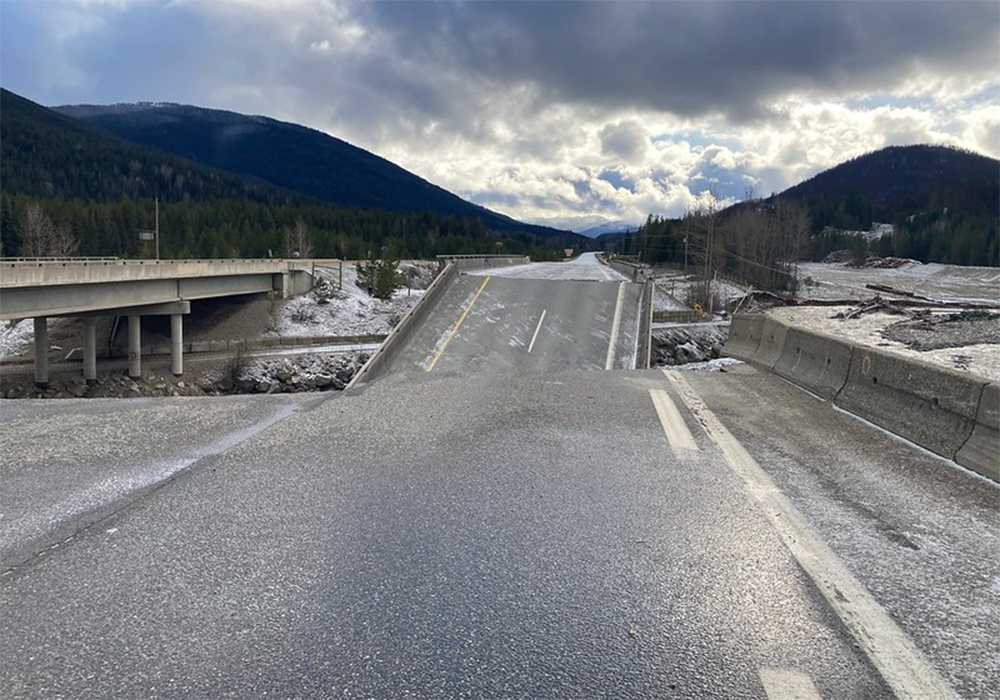Many pundits will use the horrific flooding in British Columbia as proof positive we must do more to mitigate climate change. Actually, the disaster proves the value of measures to ensure climate/weather resilience.
B.C. has had horrendous flooding in the past including 1894, 1948 and 1972. Scientists and non-scientists can argue over whether the flood of 2021 is more serious and whether it’s related to climate change, but the rich farmland of the Fraser Valley is below sea level and created through water diversion.
Home to most of the province’s dairy and poultry operations, this is some of the most expensive farmland in the nation. No matter how much Canada spends on cutting greenhouse gas emissions, it won’t alter the planet’s climate trajectory. We’re too small in the worldwide realm of emissions.
Read Also

Kochia has become a significant problem for Prairie farmers
As you travel through southern Saskatchewan and Alberta, particularly in areas challenged by dry growing conditions, the magnitude of the kochia problem is easy to see.
There’s a good argument for Canada doing its part in concert with other nations, but far too much attention is being devoted to mitigation rather than resilience. Mitigation is a quagmire of conflicting statistics and opinions. Investments in resilience are tangible and can actually make a difference whether or not you attribute weather disasters to climate change.
After the cleanup, B.C. with the help of the federal government will be compelled to make investments to ensure better protection against future floods. In hindsight, those investments should have been made much sooner.
Roads, bridges and railroads need to be rebuilt smarter and better. Pump stations and dikes can’t be neglected. Resilience is also a strong argument for why we need a mobile and capable military.
Many of the same concepts apply on the Prairies after this year’s deep and widespread drought combined with scorching hot temperatures. Farmers, ranchers and governments got a bit complacent after many years without a serious drought. Resiliency lessons of the past were forgotten.
The Saskatchewan Stock Growers Association is calling for an extension to the Farm and Ranch Water Infrastructure Program. Demand for contractors is so high that projects could not be completed before the onset of winter. The SSGA wish list also includes additional support related to water projects.
This kind of resiliency support is important to individual operations. It’s not a short-term Band-Aid. It’s help for the next drought and the one after that.
Alberta is making great strides in irrigation development to augment its already well-established infrastructure. Saskatchewan has announced big plans for irrigation expansion, but major progress is still years away.
If one is to believe many of the climate change models, the weather patterns of the future will be more variable. If that’s the case, it’ll be even more important to capture water when it’s available so it can be used later. Water reservoirs can help in times of flood as well as drought.
For most of the past decade, farmers in the eastern Prairies have worried far more about flooding and drainage issues than any lack of moisture. Wet weather will return again and it’s important to continue working on drainage policies even though they are complicated and contentious.
Crop breeding, including emerging tools such as gene editing, are part of resilience. So is the adoption of a wide range of crops and cropping practices.
Minimum tillage and direct seeding were adopted for reasons of resilience. It just so happens this also sequesters carbon and is part of mitigation.
Promoting and funding domestic resiliency may not be as sexy as international climate change summits, but results are a lot more tangible.
Kevin Hursh is an agricultural journalist, consultant and farmer. He can be reached by e-mail at kevin@hursh.ca.


















